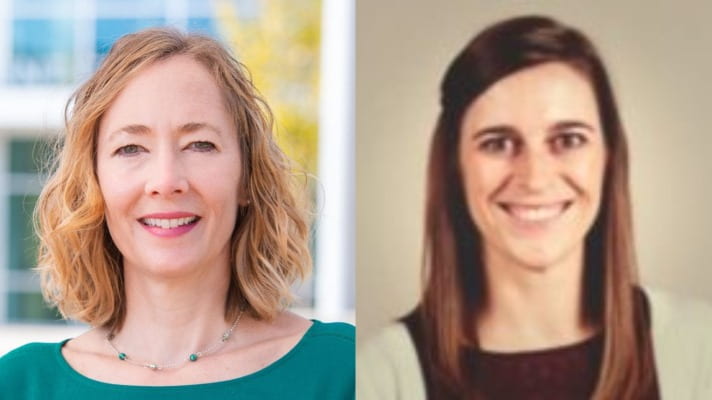Lifting each other up: how peer support is transforming chronic disease management
“People with similar health challenges can truly lift each other up,” said Michele Heisler, M.D., Professor at the University of Michigan, during a Forge AHEAD seminar at the University of Alabama at Birmingham. Her statement captures the essence of her decades-long work demonstrating how peer support—especially in communities burdened by diabetes, obesity, and hypertension—can drive better health outcomes and lasting community impact.
Heisler’s research, shaped by her clinical experiences at the Ann Arbor VA and Southwest Detroit, centers on the idea that sustainable chronic disease management depends on what happens between clinic visits. “You know what you need to do, but it’s unbelievably difficult. And you need a lot of support and strategies to help you actually take the steps,” she said.
Heroes in the community
The real power, she emphasized, lies in people—not professionals. “The heroes in this story are the community members who step up to support each other,” she shared. These peer supporters, often living with the same conditions, become trusted guides and motivators for others. One example: a Navy veteran managing multiple chronic conditions found renewed hope through daily check-ins with a fellow veteran peer supporter. “He felt sick and pretty useless. But he told us, ‘I felt that I helped him. It made me feel inspired to do more,’” she recounted.
Heisler’s mutual peer support model—where patients are matched to provide reciprocal encouragement—offers a dual benefit: “It’s not just about receiving help. Giving support is incredibly empowering. People with chronic illnesses often feel like a burden, but helping someone else gives them purpose.”

Michele Heisler, M.D.
Professor, Internal Medicine at University of Michican School of Public Health
Medical Director, Physicians for Human Rights (PHR)
Tested, proven, and evolving
Heisler has tested peer support interventions across populations and platforms—from VA hospitals to community clinics. In a randomized control trial with veterans, participants in peer support groups had significantly improved A1C levels compared to those receiving only nurse-led care. “Statistically and clinically significant improvements,” she emphasized, “with far less time and cost than traditional programs.”
Still, one of the greatest challenges is maintaining momentum. “We found that even great short-term programs lose their impact without ongoing support,” Heisler said. That realization sparked her next question: “How do you sustain gains from short-term interventions?”
Her answer: hybrid models. Combining the expertise of community health workers with the accessibility of peer supporters and digital tools, these models aim for long-term impact. One such innovation includes food vouchers as incentives for mutual peer support and participation in diabetes prevention programs. “Healthy food vouchers could be sustainable,” she explained, “and they help reduce barriers to participation while reinforcing healthy behaviors.”
A vision that aligns with Forge AHEAD
Heisler’s work directly mirrors the Forge AHEAD Center’s mission of translating research into real-world, community-driven interventions. “It’s about taking behavioral science and making it work in pragmatic, real-world ways,” she said. Her team’s focus on action planning—small, weekly health goals like walking more or cutting sugary drinks—mirrors Forge AHEAD’s precision public health approach.
Importantly, her model acknowledges the complexity of chronic disease management. “It’s not just about diet and exercise. Sometimes, a person’s action step for the week is finding stable housing or accessing a food pantry,” Heisler said. “You have to meet people where they are.”
Moving forward together
Heisler concluded with a call to action rooted in empowerment and partnership: “We’ve shown that peer support can work. Now we need to keep it going and make sure it’s sustainable—because people deserve that kind of care.”
By embracing peer support, communities are addressing chronic disease management more effectively while reducing gaps in health access and outcomes. The Forge AHEAD Center supports these efforts by ensuring that local knowledge and lived experience guide every step toward achieving optimal health for all populations.
Want to get involved?
To learn how you can support or join a peer support initiative in your community, contact your local health provider. As Heisler reminds us, “We’re all more effective—and happier—when we have someone who cares about us, who can help us when we need help.”












 Dr. Berkowitz called for a combined effort of healthcare solutions and policy changes. He spoke about the benefits of community-supported nutritional programs and policy reforms that aim to break down these barriers. To effectively tackle food insecurity, he emphasized the vital roles of community involvement and policy advocacy. He suggested advocating for improved social safety nets and fair food distribution, supporting local food banks and health programs, and educating others about how health connects with economic and social factors. By getting involved in these ways, everyone can contribute to a deeper understanding and drive meaningful change in their communities.
Dr. Berkowitz called for a combined effort of healthcare solutions and policy changes. He spoke about the benefits of community-supported nutritional programs and policy reforms that aim to break down these barriers. To effectively tackle food insecurity, he emphasized the vital roles of community involvement and policy advocacy. He suggested advocating for improved social safety nets and fair food distribution, supporting local food banks and health programs, and educating others about how health connects with economic and social factors. By getting involved in these ways, everyone can contribute to a deeper understanding and drive meaningful change in their communities.

